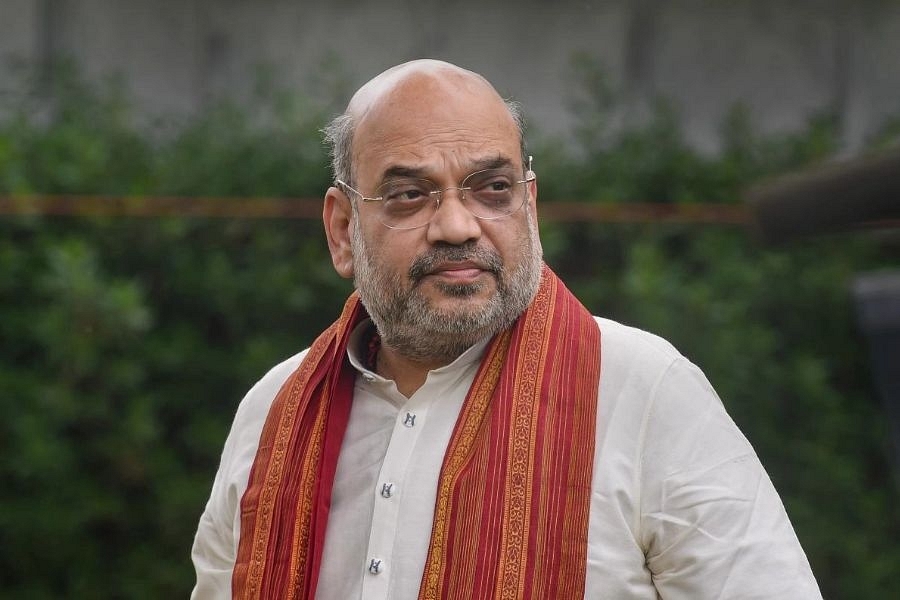Economy
In Brief: The Case For A Separate Union Ministry Of Co-operation
- Even though the benefits of the cooperative model are apparent, operational difficulties and policy gaps have marred the practice over the past two decades.
- It is in plugging these very loopholes that the genesis of this Ministry can be traced.

Union Minister Amit Shah
While the purpose and exact mandate of the new Ministry of Cooperation are yet to be detailed out, it is clear that it will provide for a separate administrative, legal and policy framework for strengthening the co-operative movement in the country. This, in turn, should give the much-needed fillip to the government’s project of creating a conducive market ecosystem for agricultural commodities where the role of the middlemen has significantly been reduced.
Come to think of it, the be-all and end-all of co-operatives is to collectivise resources to reach economies of scale and help farmers overcome the disadvantages of fragmented and small landholdings, low appetite for investment and innovation, and negligible bargaining power as singular players in the market.
A company owned by farmers has the potential to increase their income by ensuring greater returns and better price discovery; the potential to increase agricultural productivity by ensuring access to credit, collective wisdom and surplus for investment; and finally, the potential to add to the nation’s growth.
Unmet potential and the need for a separate ministry
Even though the benefits of this model are apparent, operational difficulties and policy gaps have marred the practice over the past two decades. And it is in plugging these very loopholes that the genesis of this Ministry can be traced.
Consider the case of agriculture co-operatives. Complex value chains, products differentiated by quality and type, and expectation mismanagement have made aggregation of farmers into business groups an uphill task. Furthermore, time-consuming and convoluted compliances often dampen the spirit of willing participants.
Take, for example, certain state laws on registration that require exhaustive details on the proposed directors. Rummaging this information in a country where datasets from different departments often do not speak to one another and details as basic as land records are still being digitised is no mean feat. This is, however, not to say that we haven’t made any progress. Innovative strategies like using satellite imagery to digitise land records and the creation of a national farmers’ database under Agristack have been deployed. But these efforts can be effectively synergised for greater impact by only a dedicated ministry.
Ease of doing business for co-operatives will also occupy centre stage with the establishment of this Ministry. Running a collective like an enterprise requires financial planning, aggregation and procurement plans across the value chain, quality control, backward and forward linkages, and information on consumer preferences. Additionally, required are adequate extension services like training and upskilling, much like that provided by an incubator. A conducive social business environment is important if we are to have an outward-looking and futuristic agrarian sector.
The Ministry will additionally have a lot of cleaning up to do as decades of political interference and bureaucratic bungling have spelt doom for sectors such as co-operative banking. Mumbai-based CKP Co-operative bank’s failure last year is a case in point. Years of financial irregularities, lack of proper risk assessment and under-regulation of these banks have put the life savings of thousands of people at risk. Clearing this mess would possibly occupy a sizeable bandwidth of the Ministry.
Despite several success stories, the existence of systemic problems make the upscaling of co-operatives difficult. Identifying, categorising and prioritising these problems will possibly be the mainstay of interventions planned under the Ministry of Co-operation. Technology integration at the ground level, uniform policy across states, convergence with other schemes and a single-window clearance, among other things, will be the herculean tasks that the Ministry may undertake.
Thus, the decision to announce a ministry for this purpose is both timely and sagacious. By and large, the formation of a ministry to institutionalise the co-operative movement in the country is also in line with our history of shared practices and the promise of a people-driven, prosperous economy.
Support Swarajya's 50 Ground Reports Project & Sponsor A Story
Every general election Swarajya does a 50 ground reports project.
Aimed only at serious readers and those who appreciate the nuances of political undercurrents, the project provides a sense of India's electoral landscape. As you know, these reports are produced after considerable investment of travel, time and effort on the ground.
This time too we've kicked off the project in style and have covered over 30 constituencies already. If you're someone who appreciates such work and have enjoyed our coverage please consider sponsoring a ground report for just Rs 2999 to Rs 19,999 - it goes a long way in helping us produce more quality reportage.
You can also back this project by becoming a subscriber for as little as Rs 999 - so do click on this links and choose a plan that suits you and back us.
Click below to contribute.
Latest